Six lines of work are defined by CARDH: (i) research; (ii) capacity building and partnership; (iii) promotion and advocacy; (iv) monitoring and defence; (v) support to the democratic transition; (vi) contribution to the United Nations.
1. Research
CARDH organizes conferences and carries out research and studies for the advancement of human rights, publishing books, academic articles and reports. These publications address central themes of public interest and provide analyses and, where appropriate, recommendations to the various actors active in the promotion and enjoyment of human rights.
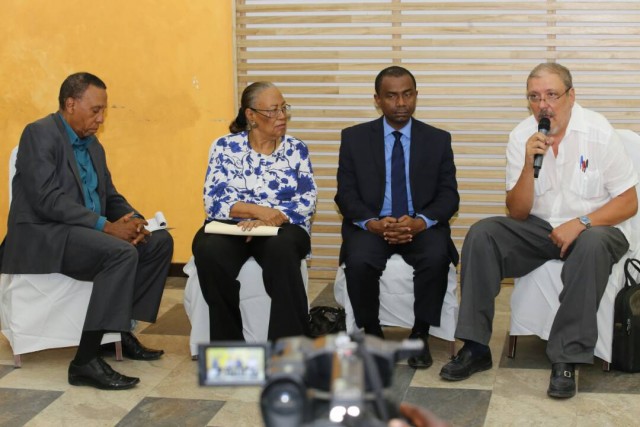
2. Capacity building and partnership
CARDH contributes to the capacity building of State and civil society actors and works with other partner organisations.
2.1. State officials
CARDH launches various initiatives adopting a human rights-based approach with various public administration officials. These have included working sessions with election candidates, as well as inter-ministerial programmes on the analysis of a national budget, in all its phases of elaboration. The latest initiative consists of a sectoral table with human rights organizations and the Haitian National Police (PNH), aimed at bringing these two entities together in promoting human rights.
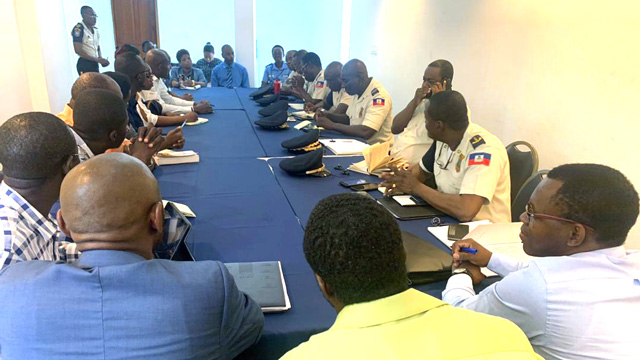
2.2. Non-state actors and civil society
2.2.1. Training
CARDH also participates in civil society capacity building. Training sessions are organized for academics, human rights organizations and other non-state actors. CARDH also conducts training sessions for grassroots community organizations in certain areas known as « lawless zones » through its « ti celil dwa moun » program.
2.2.1. Platform: Founding member of ECC (Together Against Corruption)
Together with other human rights and civil society organizations, CARDH founded a new platform called « Together Against Corruption » (ECC). This will help define common action in the fight against corruption.
2.2.3. Electoral Observation
CARDH is part of the Coalition for Election Observation (COE). This coalition of human rights and civil society organizations monitors the elections and contributes to the search for solutions to the Haitian electoral crisis.
3. Promotion and advocacy
CARDH also carries out activities to promote and mainstream human rights.
3.1. Human Rights Fair
In order to facilitate exchanges between State officials, civil society leaders and international cooperation partners on human rights, in 2017 CARDH established an annual space, the Human Rights Fair.
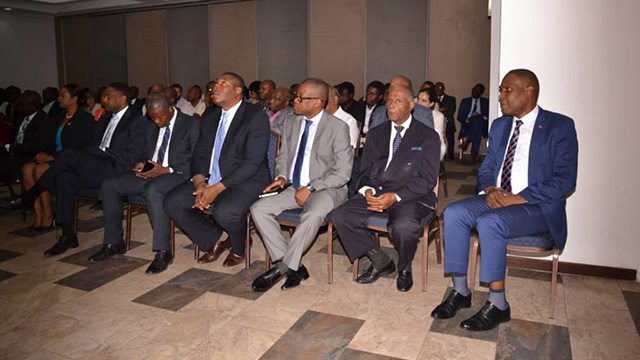
3.2. Public policies and Human rights
This pillar seeks to raise awareness of the Executive and Legislative Branches of the need to develop, adopt and advance public policies capable of improving the living conditions of the population, especially the most vulnerable.
3.3. Ratification of the International Covenant on Social, Economic and Cultural Rights
Since 2009, CARDH has been promoting the International Covenant on Social, Economic and Cultural Rights ratified in February 2012 by the Haitian Parliament. « (…) its vote by Haiti is greatly welcomed, particularly by human rights defenders, such as the Executive Director of the Centre for Analysis and Research in Human Rights (CARDH), Mr. Gédéon Jean, for whom this vote is an important step in the efforts to promote respect for human rights in Haiti, while at the same time demonstrating the will of the State to achieve this ». See United Nations Stabilization Mission in Haiti.
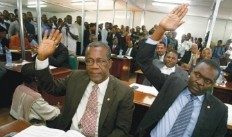
3.4. Participation in radio and television broadcasts
CARDH participates in numerous radio and television analysis programmes on human rights and related areas such as the rule of law and democratic governance.
4. Monitoring and defence
CARDH monitors human rights violations. In addition to regular reports and press releases denouncing abuses when they occur, CARDH produces annual reports on the human rights situation in Haiti , outlining the key issues of the past year, as well as recommendations to the various actors active in the protection and promotion of human rights.
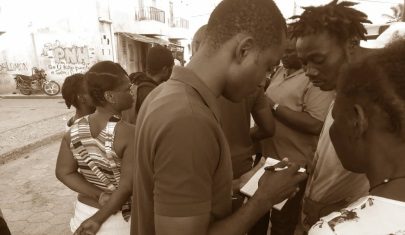
5. Support to the democratic transition
Three decades after the departure of the Duvalier dictatorship (1986), Haiti still fails to be a society that respects human rights and the principles of the rule of law, in accordance with the Constitution, adopted on February 7, 1987. The institutions that should assume the role of « guardian of the rule of law » are weak and unable to play their part. Beyond its actions directly related to the work of a civil society human rights organization, CARDH provides its expertise, which is often called upon to help resolve political and social crises.
5.1. Post-assassination crisis of President J. Moïse
5.1.1. Meeting with the high-level US delegation made up of Brian Nichols, Assistant Secretary for Western Hemisphere Affairs, and Juan Gonzalez, Senior Director of the National Security Council
Following the resignation of Daniel Foote on September 22, a high-level American delegation, made up of Brian Nichols, Assistant Secretary for Western Hemisphere Affairs, and Juan Gonzalez, Senior Director of the National Security Council, traveled to Haiti to listen to stakeholders (civil society-politicians-authorities) in their approach to the crisis and participate in it. Thus, a meeting with civil society actors was held on Thursday, September 30 at 11:45 a.m. in the premises of the Embassy of the United States of America during which said actors gave their point of view and underlined works undertaken for a solution. At the end of the visit, the delegation gave a press conference concluding that the actors should merge the different agreements and reach a single agreement, such as N ap # Mache Pou La Vi (March for life), which CARDH is a member, had proposed during the meeting (documents were given to the delegation).
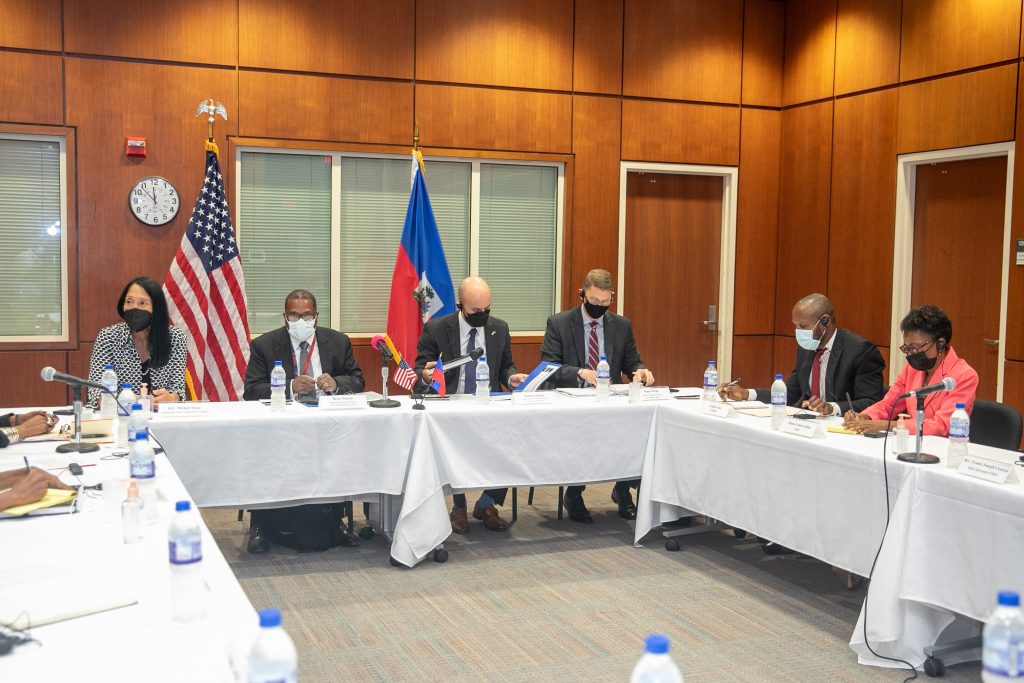
N-ap-Mache-Pou-La-Vi-Meeting-with-Nichols-et-Gonzalez-30-sept.-2021-1Télécharger
Synthesis-of-proposals-and-perspective-N-ap-Mache-Pou-La-ViTélécharger
An-ultimate-dialogue-for-a-consensual-agreement-N-ap-Mache-Pou-Lavi-Télécharger
5.1.2. Meeting with the mission led by the Under-Secretary of State for Civil Security, Democracy and Human Rights, Ms. Uzra Zeya, October 13, 2021
Following Nichols’ mission, a delegation led by the Under Secretary of State for Civil Security, Democracy and Human Rights, Uzra Zeya, visited Haiti from October 11 to 13, 2021. To begin with, CARDH brought to her attention that insecurity and criminality constitute the first problem to be tackled if one wants to set the conditions for the realization of the elections. In considerable increase, insecurity and crime affect the entire population, particularly the middle class, decapitalized, and the most vulnerable groups living on a daily basis, victims of more than 90% of kidnappings followed by rape (women), physical and moral tortures …
From January to September, the crime observation cell recorded at least 628 kidnappings, including 29 foreign nationals from three countries. At least 221, including 31 for the month of July, 73 for August and 117 for September, an increase of almost 300%. Note that these data are only indicators and not the exact number.
For the population, these missions will be important if the American government concretely helps the police and the Haitian government to resolve this problem. By tackling insecurity, among others, the following results will be achieved: i) increasing confidence in the police; ii) the population will participate in the solution; iii) the population whose interest is on the lips of politicians and the international community will take an interest in the political processes, including elections.
On governance, it is important to resolve the political crisis in the dynamic of the rule of law and respect for human rights. For CARDH, member of N ap #Mache Pou La Vi (March for Life), no single accord can guarantee stability.
The trials of the massacres and other spectacular assassinations: Monferrier Dorval, Antoinette Duclair, Diego Charles… must receive close attention like the case of President Jovenel Moïse. Strengthening justice with new perspectives is needed.
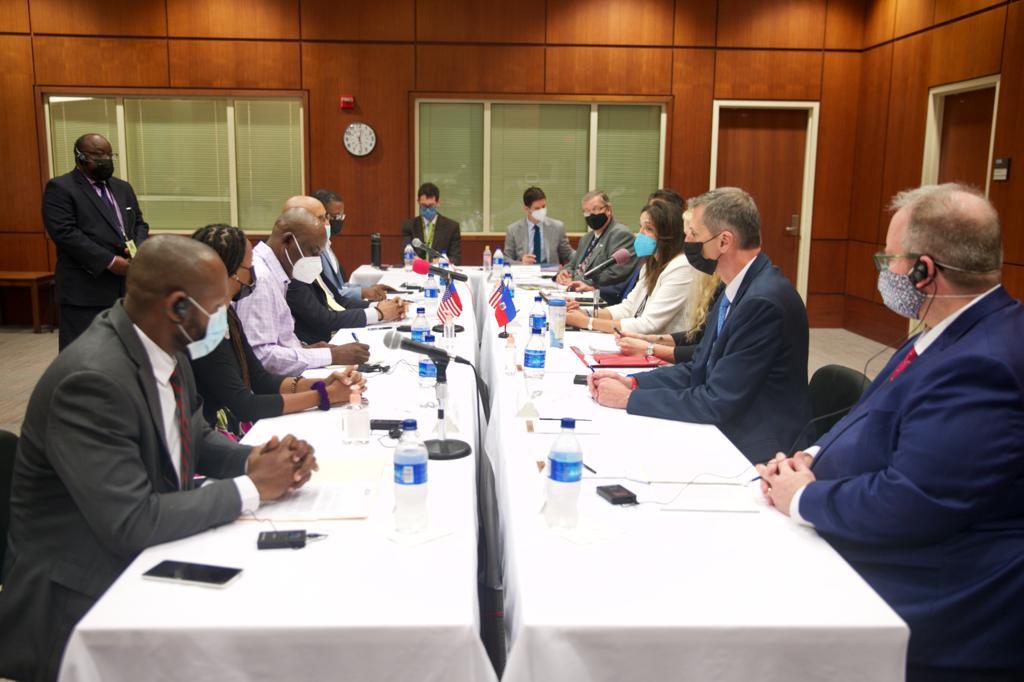
5.1.3. Meeting with Daniel Foote, United States’ Special Envoy for Haiti
In order to facilitate the search for a solution to the new crisis engendered by the assassination of President Jovenel Moïse on July 7, 2021, President Joe Biden appointed, on July 22, Ambassador Daniel Foote as special envoy of the States United for Haiti. A meeting was held with him, accompanied by the Ambassador of the United States in Haiti, Madam Michele J. Sison, to gain the understanding of the Center for Analysis and Research in Human Rights on the crisis. See the summary document.
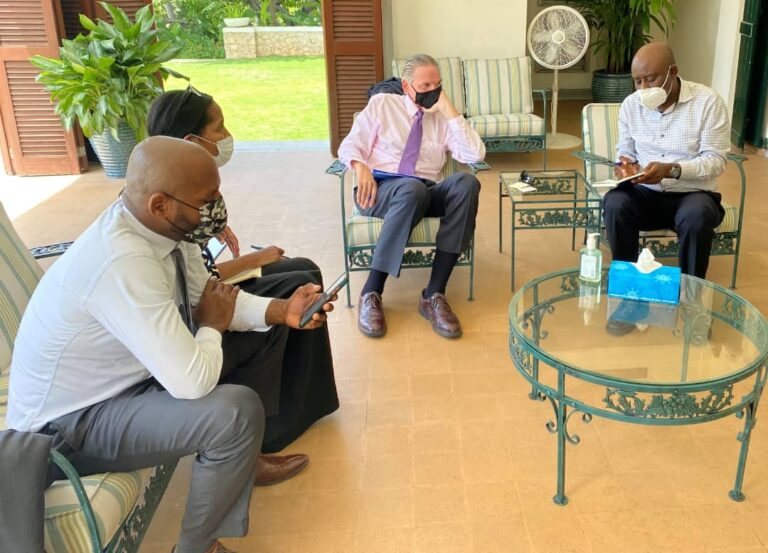
5.1.4. Inclusive Working Group (CTI) : Comparative analysis of proposals of an exit to the crisis and perspectives for a unique proposal
Given the difficulties of political actors and civil society to reach a single agreement after the signing of that of August 30, 2021 of the Citizen’s Commission for a Haitian Solution to the Crisis (CCSHC), N ap #Mache Pou Lavi (March for life), a civil society group to which CARDH is a member, proposed the establishment, as soon as possible, of an Inclusive Working Group (CTI) made up of six (6) personalities: one (1) representative of the National Memorandum of Understanding (PEN); one (1) representative of the August 30 agreement; one (1) representative of the remaining third of the Senate; one (1) representative of the de facto Prime Minister; one (1) representative of non-signatories; one (1) representative of N ap #Mache Pou Lavi (March for Life). This work could be carried out, by consensus, under the gaze of three personalities chosen from the media, the Federation of Haitian Bars and the Louis Joseph Janvier Chair. Within eight (8) days at most, the Inclusive Working Group (ITC) must reach the one-stop deal the country so badly needs.
Political, institutional and civil society entities have expressed their interest in the approach aimed at the Inclusive Work Group (CTI) for a final agreement. Thus, N ap # Mache Pou La Vi (March for Life) offers this document entitled « Comparative analysis of proposals for ending the crisis and perspectives for a unique proposal »
This document presents a summary of the various proposals in three axes: policy; economy; Justice and social security, their convergences and divergences. In addition, it suggests what actors should focus on: i) Type of Executive: Prime Minister & President or Prime Minister only; ii) Duration of transition: 18 months or 24 months; iii) Upstream consensus on the sharing of responsibilities or use of mechanisms to achieve it: 1. Government; 2. CEP & Justice, 3. Government control; 4. Restoration of public finances.
However, to get there, they must be in good faith and willing to make sacrifices necessary to get the country out of the deadlock.
5.2. Crisis born of the dysfunction of Parliament and the end of the mandate of President J. Moïse
5.2.1. Political agreement of June 5, 2021
Together with other groups and personalities, the Center for Analysis and Research in Human Rights (CARDH) formed the civil society structure called N ap # Mache PouLavi (March for Life) having carried out a vast campaign against human rights violations and the dictatorial inclination of President Jovenel Moïse. Initiated on December 10, 2020, on the occasion of International Human Rights Day, the campaign continued, on July 14 and 28, 2021, then on March 28 and 29, 2021. N’ap # Mache PouLavi (March for Life) worked for nearly three months (March to May) with groups and political parties, which allowed them to conclude the agreement of June 5, 2021.
5.3. Proposal for an end to the crisis (2015)
Faced with the politico-institutional crisis of 2015, CARDH made a proportional proposal to the crisis.
5.4. Electoral Evaluation and Verification Commission (CEEI) in 2015 and the Independent Electoral Evaluation and Verification Commission (CIEVE) in 2016,
In this respect, CARDH participated in the Electoral Evaluation and Verification Commission (CEEI) in 2015 and the Independent Electoral Evaluation and Verification Commission (CIEVE) in 2016, the latter with the aim of restoring confidence and truthfulness in the electoral process.
-
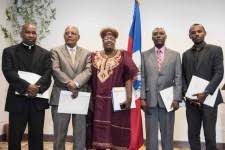
Electoral Evaluation and Verification Commission (CEEI) -

Independent Electoral Evaluation and Verification Commission (CIEVE)
5.5. Committee to coordinate the reception of returnees, formed following the wave of deportation made by the Dominican Republic in 2015.
The organization is also a member of the Joint Committee to Coordinate the Reception of Returnees, formed following the wave of deportations by the Dominican Republic in 2015. This committee is made up of leading figures from civil society and members of the government.
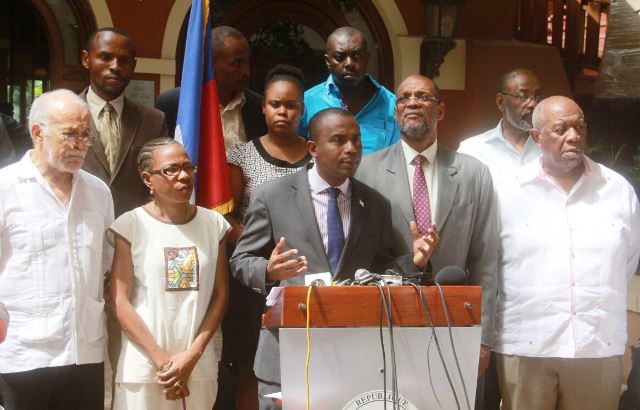
6. Contribution to United Nations
Holding tnly consultative status with the Economic and Social Council (ECOSOC) of the United Nations, CARDH responds to calls for input from special procedures and the Office of the High Commissioner for Human Rights (OHCHR) on issues related to its sphere of action. It also participates in the examinations of the Republic of Haiti by the Human Rights Council (HRC) and treaty bodies. See Works.

